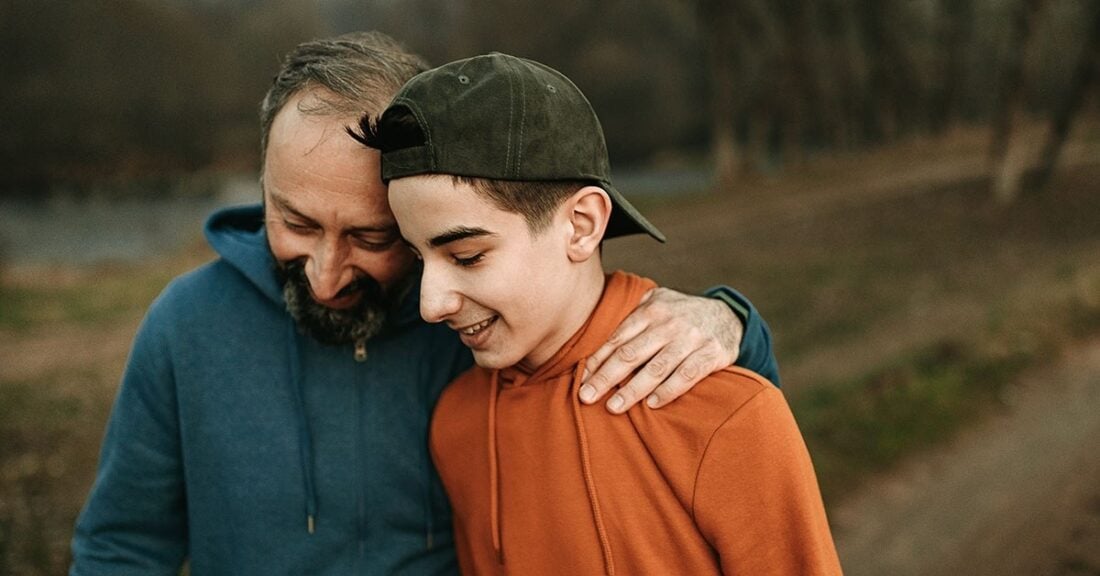National, State-by-State Data Show Depth of Mental Health Pandemic for Youth

Children in America are in the midst of a mental health crisis, struggling with anxiety and depression at unprecedented levels, according to the 2022 KIDS COUNT® Data Book, released today by the Annie E. Casey Foundation with 50-state data on child well-being. The annual report focuses this year on youth mental health, concurring with a recent assessment by the U.S. surgeon general that current conditions amount to a youth mental health pandemic. The report sheds light on the health, economic and other challenges affecting American children.
The Data Book reports that children across America, and in more than 40 states and the District of Columbia, were more likely to encounter anxiety or depression during the first year of the COVID-19 crisis than previously, with the national figure jumping 26%, from 9.4% among children ages 3–17 (5.8 million kids) to 11.8% (7.3 million) between 2016 and 2020, the year COVID-19 swept across the United States. This increase represents 1.5 million more children who are struggling to make it through the day.
Download the 2022 KIDS COUNT Data Book
“Mental health is just as important as physical health in a child’s ability to thrive,” says Lisa Hamilton, president and CEO of the Casey Foundation. “As our nation continues to navigate the fallout from the COVID-19 crisis, policymakers must do more to ensure all kids have access to the care and support they need to cope and live full lives.”
Children and youth have suffered trauma and tremendous loss over the past two and a half years. By July 2022, more than 1 million people in America had died from the novel coronavirus, including more than 1,600 children, and more than 200,000 kids had lost a parent or primary caregiver. And even as they experience COVID-era mental health challenges, many children have contended with conditions that made life harder well before 2020.
Racial and ethnic disparities contribute to disproportionately troubling mental health and wellness conditions among children of color. Nine percent of high-schoolers overall but 12% of Black students, 13% of students of two or more races and 26% of American Indian or Native Alaskan high-schoolers attempted suicide in the year prior to the most recent federal survey. Further, many LGBTQ young people are encountering challenges as they seek mental health support. Among heterosexual high school students of all races and ethnicities, 6% attempted suicide; the share was 23% for gay, lesbian or bisexual students.
Economic uncertainty has had an outsized effect on children and families experiencing financial challenges, leading to increased anxiety and stress for many. Children in poverty, whose parents lack secure employment and children in households with high housing cost burdens feel the weight of their family’s economic stress. Children who live in under-resourced communities may experience additional stress from safety and security concerns. The report finds:
- 17% of children of all backgrounds live in poverty, but among African American and American Indian children, that proportion is close to a third, at 32% and 31% respectively.
- 27% of all children have parents lacking secure employment, but that number goes up to 44% and 41% for American Indian and African American children respectively.
- Latino children also face a higher burden in these two categories than their white counterparts.
- Uninsured children are less likely to have access to mental health services, preventing them from securing the help they need in times of crisis.
In December, U.S. Surgeon General Dr. Vivek Murthy issued an advisory on the urgent need to address the nation’s youth mental health crisis. Encouragingly, there appears to be broad agreement on the need for action. The Casey Foundation calls for lawmakers to heed the surgeon general’s warning and respond by developing programs and policies to ease mental health burdens on children and their families. They urge policymakers to:
- Prioritize meeting kids’ basic needs. Youth who grow up in poverty are two to three times more likely to develop mental health conditions than their peers. Children need a solid foundation of nutritious food, stable housing and safe neighborhoods — and their families need financial stability — to foster positive mental health and wellness.
- Ensure every child has access to the mental health care they need, when and where they need it. Schools should increase the presence of social workers, psychologists and other mental health professionals on staff and strive to meet the 250-to‑1 ratio of students to counselors recommended by the American School Counselor Association, and work with local health care providers and local and state governments to make additional federal resources available and coordinate treatment.
- Bolster mental health care that considers young people’s experiences and identities. It should be trauma-informed — designed to promote a child’s healing and emotional security — and culturally relevant to the child’s life. It should be informed by the latest evidence and research and should be geared toward early intervention, which can be especially important in the absence of a formal diagnosis of mental illness.
Each year, the Data Book presents national and state data from 16 indicators in four domains — economic well-being, education, health, and family and community factors — and ranks the states according to how children are faring overall. The data in this year’s report are a mix of pre-pandemic and more recent figures and are the latest available. Massachusetts, New Hampshire and Minnesota rank first, second and third in overall well-being in the 2022 Data Book; Mississippi, Louisiana and New Mexico ranked 48th, 49th and 50th.
“American policymakers must prioritize solutions that don’t leave anyone behind,” Hamilton says. “Children deserve to thrive regardless of their background or in which state they live.”






